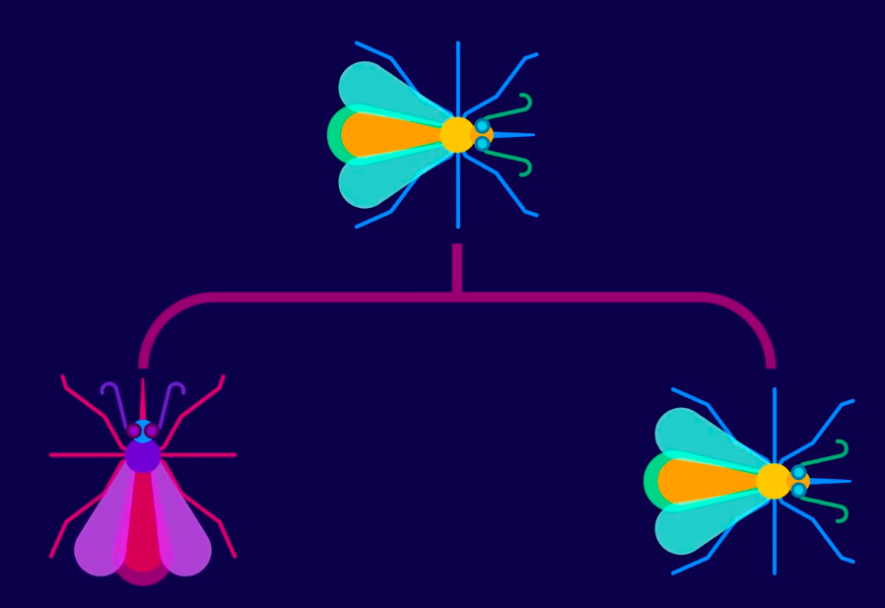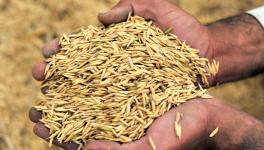Genetically-Modified Mosquitoes - An Experiment to Eradicate Malaria

Credits: Kurzgesagt/YouTube
Malaria is one of the deadliest diseases in human history. It infected around 200,000,000 people in 2015, out of which 500,000 died. An experiment is proposed to take place in India to attempt eradication of malaria - genetic modification of mosquitoes which will make it impossible for them to transmit malaria.
Researchers at the University of California have modified the genes of malaria-carrying mosquitoes to make them resistant to Plasmodium - the parasite that causes malaria. The University has received a grant of Rs 460 crore from Tata Trusts, which they plan to use to test these genetically modified mosquitoes in India. If these field trials are allowed, it will be the first time this technology will be used anywhere in the world for vector control.
The genetically-modified mosquitoes will be spread in the wild using ‘gene drive’. Gene drive is a technology that ensures a particular gene is inherited in new offsprings, and can impact the entire population of a species. While it is being done here to control transmission of a disease-causing parasite, changing the nature of a species will impact the environment and ecosystems in ways that are not yet properly known.
When an offspring is produced, it carries two copies of every gene, one from each parent. But it inherits only one, the dominant gene. So even if genetically modified mosquitoes are introduced in the wild, only 50% of newly born mosquitoes will inherit the malaria-resistant gene. The new gene will then take a long time to spread in the whole population and actually reduce malaria.
With gene drive, however, the malaria-resistant gene will become the dominant one, ensuring that every new offspring inherit it.
The modification of the mosquito genome has been done using CRISPR-Cas9, a fast and cost-effective gene editing technology.
While this is an exciting discovery, which could significantly lower the number of fatalities caused by malaria, the implications of such an experiment need to be looked at very carefully.
Once this new gene is released in the wild, there is no way of stopping it from spreading. And the modified species of mosquito will not be limited to a particular geographic area. If the experiment is done in India, the gene will eventually spread to mosquitoes across national boundaries.
Moreover, if mosquitoes are modified to not transmit the parasite, it is possible that the parasite will evolve in an attempt to spread. This could create a new and possibly more dangerous parasite for humanity to grapple with.
Gene drives can result in multiple unintentional effects on the environment and other living species. It is of utmost importance that the public is informed of such trials, and be involved in discussions around it.
Since mosquitoes have short life-spans, scientists are hoping that the modified mosquitoes will spread faster than the malaria-causing parasite can evolve. But the impact such an experiment can have on ecosystems, of which mosquitoes are a crucial part, is not known.
The question to be answered finally is if malaria is a threat potent enough to warrant an experiment with many unknown consequences. Some argue that seeing the number of deaths caused by malaria, it is unethical to not give this a shot. Researchers are still working out how this experiment can be carried out in the safest possible manner.
Moreover, many are sceptical that these trials will ever be approved in India. Bt brinjal, a genetically modified form of the vegetable, is still banned in India. And genetically modified crops are much safer as they do not propagate themselves. This makes it unlikely that field trials for mosquitoes will be carried out anytime soon, without extensive research into the consequences.
Get the latest reports & analysis with people's perspective on Protests, movements & deep analytical videos, discussions of the current affairs in your Telegram app. Subscribe to NewsClick's Telegram channel & get Real-Time updates on stories, as they get published on our website.
























